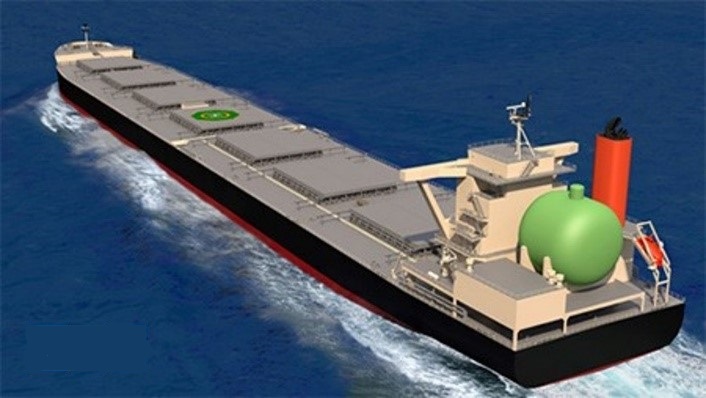Japan’s shipping giant MOL and its partners have received basic design approval for a new methane system which they claim would significantly slash emissions from LNG-powered vessels.
MOL, Hitachi Zoshen, and Yanmar Power Technologies have won approval in principle for their methane oxidation catalyst system from classification society ClassNK, according to a joint statement on Wednesday.
ClassNK confirmed that the proposed system meets the requirements of the IGF Code and other regulations.
The system reduces methane slip by placing a methane oxidation catalyst in an LNG-fueled engine and oxidizing the methane.
This is the first time in the world that a methane oxidation catalyst system has received approval in principle, the partners said.
Backed by the New Energy and Industrial Technology Development Organization (NEDO), Hitachi Zosen and YPT created the system design while MOL and Namura Shipbuilding would build the actual demonstration vessel and design the system’s installation.
The project aims to further reduce the environmental impact of LNG-fueled engines by achieving a methane slip reduction rate of more than 70 percent over a six-year period from FY2021 to FY2026, the statement said.
This approval marks an “important first step” toward establishing the technology for this system, the statement said.
MOL previously said it plans to have 90 LNG-powered vessels in its fleet by 2030 as it looks to achieve net-zero GHG emissions by 2050.
The shipping giant is working on several projects and it recently said that Mitsubishi Shipbuilding had launched Japan’s first LNG-fueled ferry, Sunflower Kurenai.

